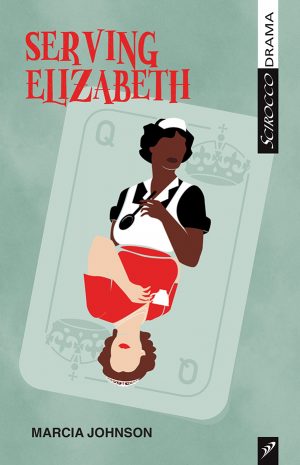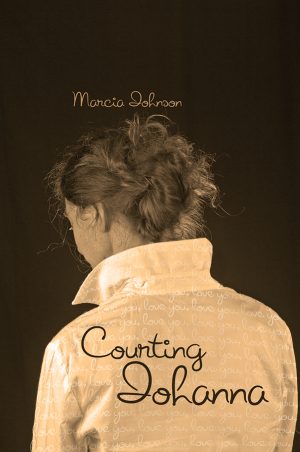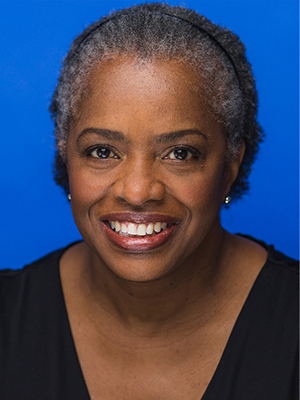Posted June 2, 2021
The Interview – Marcia Johnson
Marcia Johnson
Marcia Johnson is a playwright and actor based in Toronto. Her plays include Serving Elizabeth (Scirocco Drama, 2020), Binti’s Journey, an adaptation of The Heaven Shop by Deborah Ellis; Courting Johanna (Scirocco Drama, 2009) based on Alice Munro’s “Hateship, Friendship, Courtship, Loveship, Marriage,” and Late. Her plays have been performed by the Blyth Festival, Obsidian Theatre Company, Theatre Direct Canada, Manitoba Theatre for Young People, Black Theatre Workshop, Western Canadian Theatre Company, Thousand Islands Playhouse, the Stratford Festival, and more. My Mother’s Ring, a short opera for which she wrote the libretto with composer Stephen A. Taylor, was nominated for a 2009 Dora Mavor Moore Award. Their second collaboration, Paradises Lost, based on the Ursula K. Le Guin novella, had excerpted concert performances by Third Angle Ensemble in Portland, Oregon and at The Gershwin Hotel in New York. Marcia Johnson is a core member of Got Your Back Canada and is a juror/dramaturg for Ergo Pink Fest, supporting, developing and showcasing the works of women and playwrights of marginalized genders.
What do you like about being a playwright?
I like showing a different perspective on familiar stories and also shining a light on stories that should be told. It’s fun turning a political or historical issue into an engaging play.
What’s the best piece of playwriting advice that you’ve ever received?
“Book the theatre and hire the actors. This will guarantee that you have something for the actors.” — Djanet Sears. That advice helped me to write my first full-length play, Perfect on Paper, after being stuck at scene three. I couldn’t afford a theatre rental, but I invited actors to my home and promised them a barbecue dinner afterwards. It worked. I sent the script to the actors a week ahead of time.
Serving Elizabeth opens at Stratford in August. Can you tell us a little about that play?
Serving Elizabeth was inspired by an episode of the Netflix series The Crown where Princess Elizabeth and Prince Philip went to Kenya — and none of the Black characters had lines. (Some spoke in Swahili or Kikuyu but there were no subtitles). I wrote it during my time in the playwrights’ unit at Thousand Islands Playhouse. TIP commissioned the play and co-produced it with Western Canada Theatre in Kamloops.
Stratford commissioned me to adapt the play from the two-act version that premiered at Western Canada Theatre in February 2020 into a ninety-minute version. (Stratford is doing one-act shows this year to avoid the crowding that would happen in the restrooms during intermission.) Serving Elizabeth begins previews there on August 24 and opens on the 28.
The TIP run has been moved from October 2020 to October 2021 with a completely different team than the Stratford production. Other productions are in the works.
Who or what do you count among your inspirations and influences?
Brian Quirt was dramaturge for my first play You Look Great Too. He told me that the best way for actors to give feedback was for them to ask questions. I was under no obligation to answer. Dave Carley was my script editor for the radio drama version of Perfect on Paper. Our first feedback session was in a cafe. He made observations, answered my questions and asked questions of his own. Like Brian, he told me that I didn’t have to answer. It was just important for me to know that there were questions. Lastly, Lynn Nottage. I saw Ruined at Manhattan Theatre Club. That play taught me that a playwright has to take care of the audience. She has to take care when introducing them to the world she’s creating. Nottage’s play was about the plight of women in the Congo. Some of the information was pretty hard to take, but she structured the play in a way that made sure I wasn’t (too much of) a mess by the end.
When you look at your body of work, do you see any recurring themes or subjects? If so, what are they, and why do you think you revisit them?
I’ve noticed recently that my plays which come from anger are the “easiest” to write. I tap into the rage that I felt from a bad relationship or a racist incident to say what should have been said or to show what should have been done. It’s like going back in time. Very satisfying. (Also, my characters tend to drink tea at some point.)
This may be hard to think about during the pandemic, but can you describe one of your favourite nights in the theatre – either at one of your own plays or at someone else’s?
December 8, 2017. The first reading of Serving Elizabeth (then called Heavy is the Head) at Thousand Islands Playhouse’s Sneak Peek Week. A member of the audience stood up during the talkback and said that she had seen the TV episode that had inspired the play and was ashamed to say that she had not seen anything wrong with it. Now, after seeing the reading, she said that Thousand Islands and other theatres should program the play so that other people could learn from it too.
Tell us about “Hello, It’s Marcia”.
I moved near the beginning of the pandemic. I had to pack everything on my own because of the restrictions. While tackling my bookshelf, I came across the children’s books that I’d collected over the years. I decided to read a book a day on Facebook until I ran out. I got a lot of compliments. I started borrowing books from friends in the neighbourhood until the library re-opened. I said that I would keep reading until the pandemic was over. As of this writing, I’ve read more than 350 books. It’s led to a commission from the Wee Festival (a puppet show about the seasons). I still intend to keep going until the pandemic ends but I’ve cut back from seven days a week to just weekdays.
Can you tell us about some of the organizations you’re involved with, such as the Ergo Pink Fest, Got Your Back Canada, and the CASA Project?
Ergo Pink Fest is the brainchild of Anna Pappas. She had read a statistic that the area in which women were least represented in professional Canadian theatre was playwriting. She decided to do something about that. While she was at it, she realized that she had to include trans and non-binary playwrights too. I was honoured when she brought me on board to help sort through the applications. Then I was honoured to be assigned as a dramaturg and actor on a piece. This festival filled a gap in the play development world and I’m thrilled to still be involved.
Got Your Back Canada is an artist-run organization open to anyone in this industry who needs support when it comes to speaking about abuse or discrimination. I’ve been involved in co-hosting our Living Room sessions, moderating a panel at our very successful theatre education conference and helping to get our members elected to CAEA council. Change is happening.
The CASA Award (Canada South Africa) is a mentorship award for mid-career South African female playwrights. I and several other female Canadian playwrights met wonderful playwrights at the triennial Women Playwrights International Conference in Cape Town. Their work was wonderful, usually connected with advocacy. Not only did most of them have to produce their own work, very few of them were published. We wanted to support our playwriting sisters. When we got back home, the fundraising began. We have paired winning South African playwrights with a female Canadian mentor, a South African director and $5,000 to pay expenses for three months. Funding is in place for the next few years. We continue to take donations through the Playwrights Guild of Canada “Canada Helps” page.
What are you working on now?
I have a commission from Blyth Festival, Kate and Bianca, inspired by the real life of James Mink, a Black councilman, hotel owner, businessman and millionaire in nineteenth-century Toronto. I’ve mashed up elements of his life with Shakespeare’s Taming of the Shrew. I’m also researching and writing sketches for two other plays: One is set in a World War II POW camp and the other is set in Tudor England.
Books by Marcia Johnson
-
 Serving ElizabethPrice range: $9.99 through $15.95
Serving ElizabethPrice range: $9.99 through $15.95 -
 Courting Johanna$14.95
Courting Johanna$14.95

